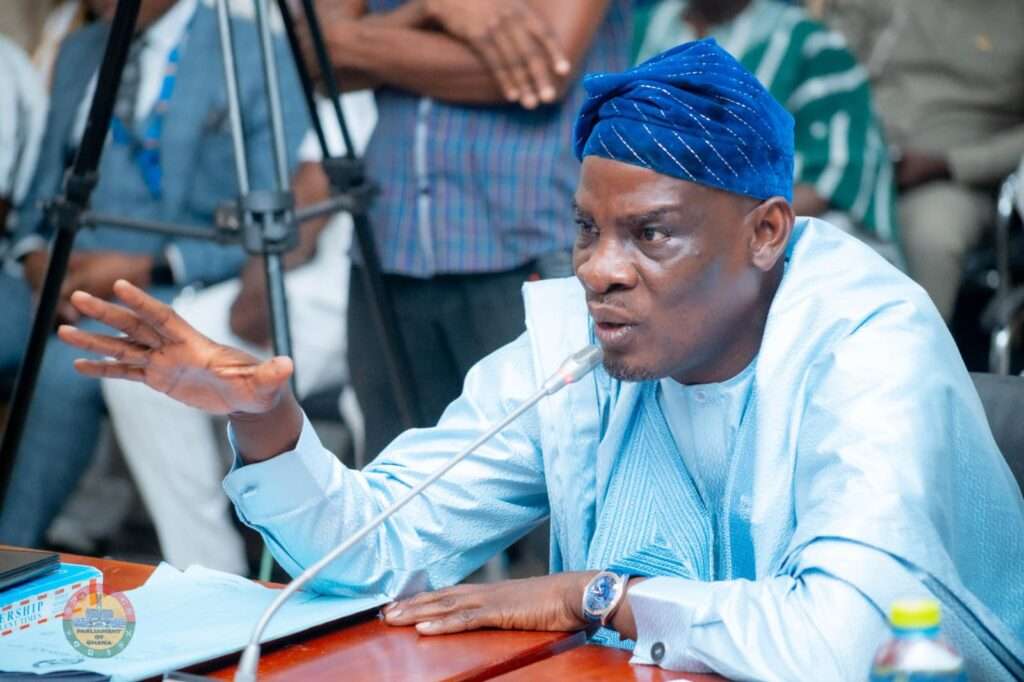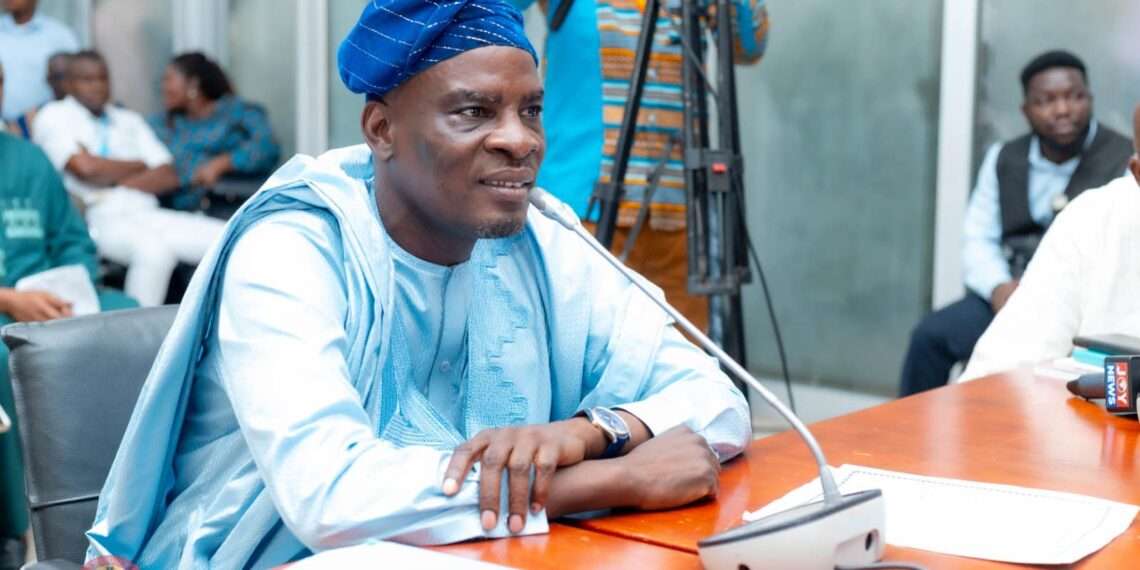The Minister Designate for Education, Hon. Haruna Iddrisu has underscored the National Democratic Congress administration’s ambitious vision to improve the quality of education in the country during his vetting at the Appointment Committee of Parliament.
Addressing a range of critical questions posed by members of the committee, the nominee emphasized the National Democratic Congress (NDC) government’s commitment to expanding access to quality education, alleviating financial barriers, and addressing longstanding challenges within the sector.
In his opening remarks, Hon. Iddrisu underscored the NDC’s flagship promise of providing free tuition for all Level 100 students in public universities, with plans to expand the initiative to private tertiary institutions.
“President Mahama and the NDC promised free tuition for students from level 100 who would undertake normal programs in the various public universities of our country, including what he has said expanded to private tertiary institutions.
“The population for which the country will require is about GHS 345,000,000 is what the state will be required to do. We intend to provide that money to the affected universities, at least to make a refund to all those who have already paid those fees.”
Hon. Haruna Iddrisu, Minister Designate of Education
The nominee assured that the funds would be mobilized to reimburse students who have already paid fees, adding that parents who prefer to pay could opt out.
Hon. Haruna Iddrisu further revealed that approximately 125,000 students are expected to benefit, with the government budgeting GHS 375 million to ensure the policy’s sustainability.
He described the initiative as “open and inclusive,” reflecting the NDC’s commitment to creating equitable opportunities for tertiary education.
Commitment to STEM Education
Responding to questions from Hon. Yaw Osei Adutwum, NPP MP for Bosomtwe and former Education Minister, about plans for Science, Technology, Engineering, and Mathematics (STEM) education, Hon. Haruna Iddrisu lauded ongoing efforts while presenting his vision for the future.
He pledged to establish at least one model STEM school in each region, spanning kindergarten to senior high school. These institutions, he noted, would prepare students for the future of work and contribute to Ghana’s sustainable development efforts.
The Tamale South lawmaker emphasized the need for universities to align more closely with industry demands without compromising their core academic objectives.
“We appreciate that going into the future, we need to train more people in science, information and communication technology, and engineering,” he said, highlighting plans to prioritize foundational learning and critical thinking at the secondary level.
Uncapping the GETFund for Educational Development
Hon. Iddrisu made a strong case for uncapping the Ghana Education Trust Fund (GETFund), citing its critical role in addressing infrastructure deficits in education.
He lamented the financial constraints imposed by the capping policy and its impact on education financing. “Currently, the capped GETFund amounts to GHS 3.2 billion. If uncapped, we could free up GHS 7.9 billion to expand infrastructure development,” he argued.

He highlighted pressing needs, such as fixing overcrowded classrooms, constructing hygienic changing facilities for girls, and expanding access to junior high schools in underserved areas.
The nominee affirmed that the NDC government, under President John Dramani Mahama, would engage the International Monetary Fund (IMF) to revise the current program, allowing Ghana to leverage GETFund resources more effectively.
Addressing Public Education Quality and Inequalities
In response to concerns about disparities between urban and rural schools, particularly between Southern and Northern Ghana, Hon. Iddrisu outlined plans to improve educational outcomes in deprived communities.
He proposed realigning portions of the District Assemblies Common Fund to build teacher accommodations in rural areas, thereby addressing teacher shortages and ensuring equitable distribution of resources.
“Rural education and the north-south dichotomy in school performance require urgent attention,” he stated. The nominee also called for increased investment in public education to ease the financial burden on parents and reduce reliance on private schools.
Hon. Haruna Iddrisu acknowledged the challenges faced by public sector workers, including teachers and nurses, and emphasized the need for better resource mobilization to meet the 20% national expenditure benchmark for education.
He stressed the importance of expanding technical and vocational education (TVET) initiatives to enhance employability and address the growing threat of unemployment among graduates.
Throughout his responses, Hon.Haruna Iddrisu emphasized the importance of continuity in governance. He assured the committee that the NDC government would complete all ongoing educational projects initiated by previous administrations in adherence to the directive principles of state policy.
“We will expand access and complete all projects, giving due respect to the state’s responsibility to ensure progress,” he affirmed. Hon. Haruna Iddrisu’s vetting highlighted a clear vision for Ghana’s education sector, grounded in access, equity, and quality.
His proposals to expand free tuition, prioritize STEM education, uncap the GETFund, and address rural-urban disparities demonstrate a commitment to addressing systemic challenges and creating opportunities for all Ghanaians.
The education ministry, under his leadership, promises transformative policies to align with the country’s broader development goals.
READ ALSO: Oil Prices Dip Amid Expectations of Trump’s Energy Policy Shifts




















